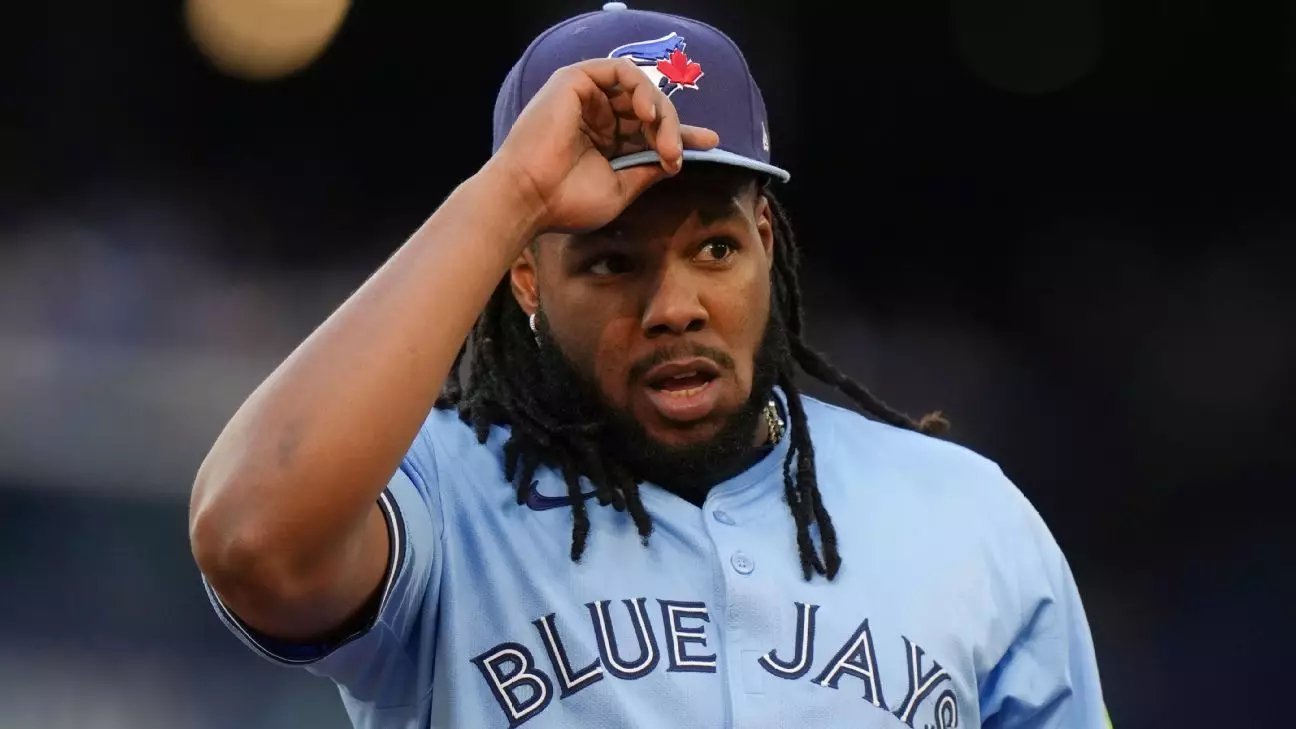In Major League Baseball, the arbitration process plays an essential role in determining the salaries of players who are yet to reach free agency. This mechanism not only illustrates a player’s market value but also reflects the strategic financial dynamics of teams vying for competitive advantages. Recently, several notable deals highlighted both individual performances and the broader trends within the industry.
The Toronto Blue Jays and first baseman Vladimir Guerrero Jr. recently reached a pivotal agreement, with Guerrero signing a one-year contract valued at $28.5 million. This deal, finalized just before the deadline for exchanging salary proposals, emphasizes the increasing financial stakes in player negotiations. Guerrero, now an emerging star in the league and the son of Hall of Famer Vladimir Guerrero, had previously set a record for arbitration when he received $19.9 million after a hearing in 2023, showing a pronounced leap in earnings within a year.
Similarly, the Houston Astros reached a one-year contract with left-hander Framber Valdez at $18 million, showcasing how valuable pitchers can command significant salaries. Valdez and Guerrero are expected to enter free agency after the World Series, creating anticipation around their potential market value. Their negotiations underscore a crucial trend: teams are willing to invest heavily in standout players to shore up their rosters and retain competitive positions.
The landscape of MLB arbitration has witnessed revolutionary shifts in contract sizes, with burgeoning talents like Juan Soto setting record-high agreements. Soto’s $31 million deal with the New York Yankees last year stood as a testament to how rapidly player valuations can increase, particularly for emerging stars. This trend was further solidified when he signed a groundbreaking 15-year, $765 million contract with the New York Mets in November. Such astronomical figures have not only raised the bar for established players but are also reshaping expectations for arbitration-eligible athletes.
Another standout in the arbitration saga is Tarik Skubal, the reigning American League Cy Young Award winner, who secured $10.15 million from the Detroit Tigers. Skubal’s salary is more than three times his previous earnings. This striking escalation in pay for a young player emphasizes that performance accolades are becoming increasingly influential in salary negotiations.
As per the current framework, a total of 155 players were deemed eligible for arbitration at the beginning of the agreement rush. A considerable number of players successfully negotiated contracts, though a few, notably Chicago Cubs outfielder Kyle Tucker and Boston Red Sox outfielder Jarren Duran, faced the possibility of arbitration hearings. The hearings, set to take place from late January to mid-February, reflect the competitive tensions that accompany salary negotiations. The recent calculation indicated that players have historically maintained a slight edge in arbitration outcomes, historically marking a 353-266 record since the process began in 1974.
Yet, while players have ultimately enjoyed some success, the accompanying pressures of the negotiations cannot be overlooked. The significant drop in eligible arbitration players—from 238 to 169—highlights how team strategies may be shifting toward consolidation and focused investments.
Future Implications for Player Contracts
The aftermath of these recent arbitration agreements suggests broader implications for both teams and players in MLB. For franchises, securing star players at competitive rates can be pivotal for success in the league, especially as each season brings fresh challenges and competition. Conversely, for players, understanding market dynamics can lead to lucrative contracts that align with both performance and industry trends.
As teams navigate these complex negotiations, the unique circumstances surrounding each player will likely determine the outcomes. The landscape of MLB arbitrations suggests a continued upward trajectory in the financial valuations of players, with many emerging talents poised to demand and receive record salaries. As baseball continues to evolve, the strategies employed during contract negotiations will play a critical role in shaping the future of the sport.

